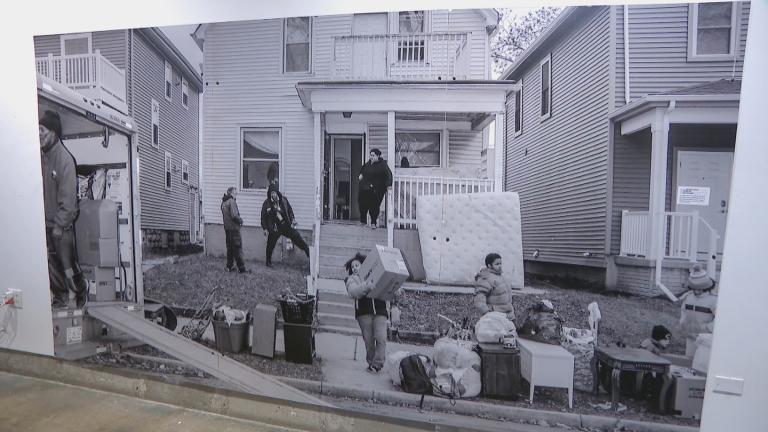According to a DePaul University 2017 housing study, 44 percent of Cook County residents are renters – the county’s highest level since 1990. And while the number of renters climbs, so do the number of higher-income renters, who snap up luxury rentals in hot neighborhoods like Logan Square and the West Loop. But for renters at the lower end of the income scale, finding affordable housing is difficult, and many find themselves squeezed out of gentrifying neighborhoods by skyrocketing rents. Now, activists are hoping that bringing rent control to Chicago’s neighborhoods might help low-income renters keep their apartments.
Byron Sigcho of the Pilsen Alliance says the organization has been advocating for affordable housing and property tax assessment reform since its beginnings 20 years ago. In recent years, the Pilsen Alliance has linked up with other community groups to push for an end to Illinois’ ban on rent control. Sigcho, who is on a leave of absence from the organization while he runs for alderman of the 25th Ward, says it’s “tough to create affordable housing options when there’s no political will.”
Poll: Have you ever been priced out of your neighborhood due to gentrification?
“In New York, San Francisco, and other big cities, rent control has been one of those public policy options considered as a way to address the speculation we see in the markets that are saturated, like in Pilsen,” Sigcho said. “Right now we have rents that average $2,000 in a neighborhood where the average income is $34,000 a year. This is not a normal, natural trend. So we started talking with Kenwood-Oakland Community Organization, the Hope Center, other groups, and created a citywide coalition about rent control.”
The idea has certainly gained traction in Chicago, where earlier this month, voters in the 35th, 46th, and 49th wards overwhelmingly voted in favor of lifting the Illinois state ban on rent control.
But property owner groups say that rather than helping, rent control ends up hurting the housing supply in the long run. Michael Glasser, president of the Neighborhood Building Owners Association, says that the real problem in Chicago is a lack of supply of affordable housing, which rent control will not address. “Wherever it’s been implemented in the U.S. and elsewhere it’s proven to diminish the supply of affordable housing available and bring the existing housing into a state of disrepair.”
Ultimately, Glasser says it’s important to remember that property owners are running a business, and that the market is better at setting prices than the government. “We’re in this because we’re looking to make money, protect our futures, pass something on to our children. We take a risk investing in real estate,” he said. “There has to be a reward to justify the investment. The free market system is better than a rent control board – it does an exceptional job of arbitrating between what a tenant is willing to pay and a property owner can charge.”
Sigcho and Glasser join us in conversation on “Chicago Tonight.”
Related stories:
Rent Control in Chicago: The Cases For and Against It








